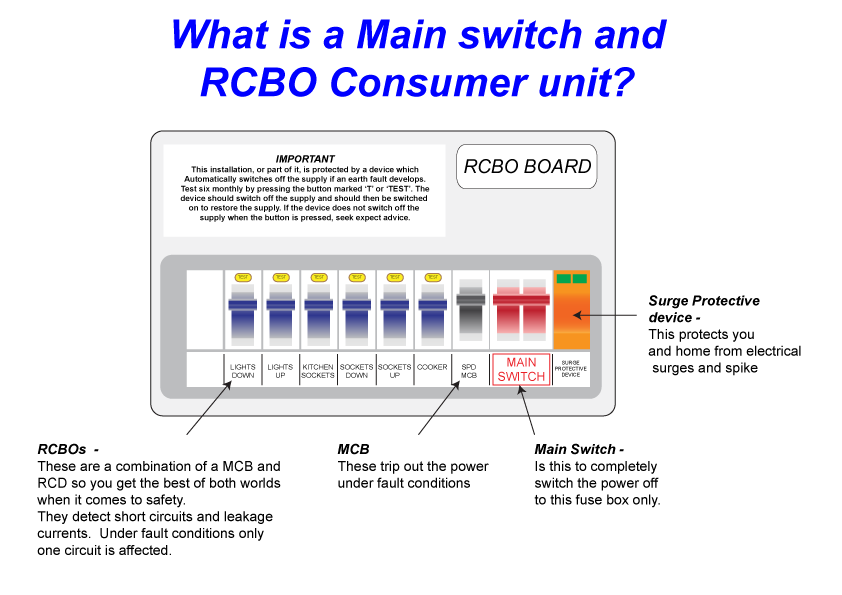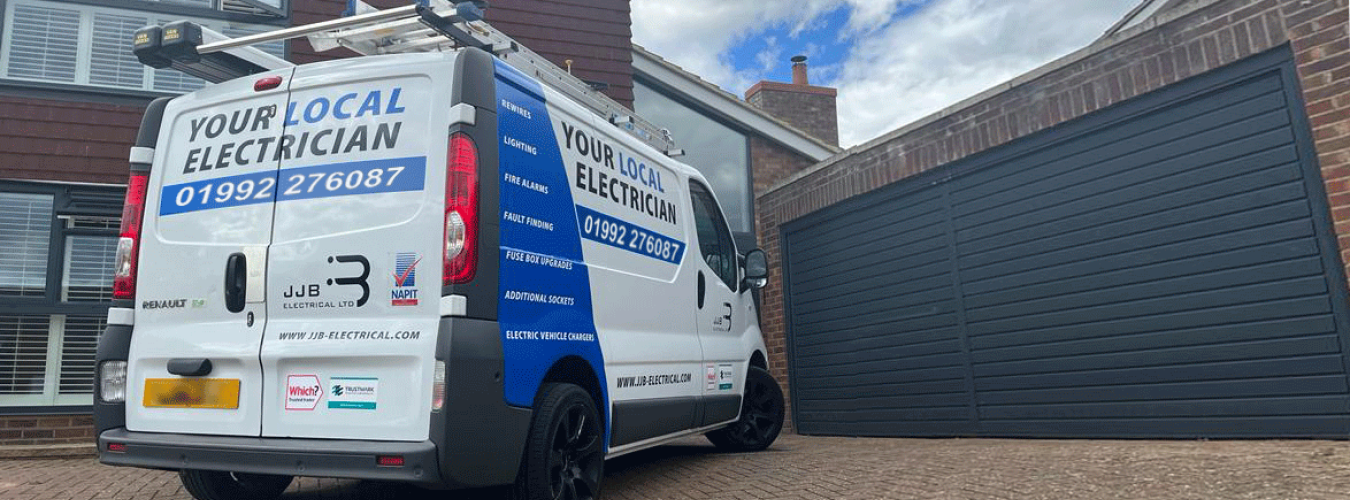Looking to upgrade the fuse board in your home?
When it comes to upgrading the main hub of the electrical system within your home, we understand this can be a daunting task and you will have a variety of questions to do with this subject, so on this page hopefully we will do our very best to answer the majority of them for you.
Before any fuse board upgrade, we strongly recommend carrying out an Electrical installation condition report, more information on this can be found here EICR | JJB Electrical Ltd (jjb-electrical.com) this is recommend so any safety concerns and potential faults within your home are highlighted and can be addressed before the fuse board is upgraded. this will ensure no necessary tripping of the circuits due to faults which older circuit breakers and wired fuses wouldn’t detect and make sure the electrics in your home are in a safe condition and up to the current electrical regulations.
We are now on the 18th edition of the wiring regulations and they stipulate that consumer unit / fuse board, should be metal and contain fire barriers, RCD protection is a must and pretty much every installation is in need of surge protection and you should be offered arc fault detection devices.
As a standard we always fit surge protection and we never install cheaper split load RCD protected boards, we only use RCBOs as to avoid any nuisance tripping and loosing half the power to your house, which is what happens with dual RCD split load boards.
For further information on all things to do with fuse board upgrades please watch the videos and browse the content below.
Don’t see the answer then use the contact form and we will gladly answer any question you may have
To change an average 8 way fuse board and carry out the testing it takes around 4 – 5 hours, but previous to any board change, an electrical installation condition report (EICR) needs to be carried out to remove any potential faults or anything unsafe which is already present.
There is nothing worse than hearing that dreaded trip sound and wondering why!
A residual-current circuit breaker is an electrical safety device that disconnects the circuit in the event of a fault. It is to protect equipment and to reduce the risk of serious harm from an ongoing electric shock.
The fuse board can be moved up to a maximum of 3m from the incoming main fuse. If the board needs to be further than that the meter tails will have to fused separately.
An AFDD is a type of circuit breaker, which is constantly looking for loose connections and basically anything which causes electrical arcs. When an arc is detected the breaker trips and disconnects the affected circuit.
Under the 18th wiring regulations, consumer units within homes throughout the Uk need to be constructed out of a none combustible material.
A surge protection device is designed to protect you and the electrical accessories within your home from electrical spikes.
How does it work?
A surge protection device SPD either blocks incoming voltage spikes or it directs the over voltage back down to earth.
How do I know if my SPD has been activated?
There are indicator windows located on the front of the SPD, if these turn RED it means there’s been a surge and the SPD module needs to be changed.
This can be due to a loose connection within the board and would need to be address ASAP as loose connections can lead to fires.


If there are any issues with the main fuse the distribution operator should be contacted straight away. These issues include, burning smells, if it's hot or damaged.
The main fuse is where the electrical supply enters your home.
Then on to the meter, it belongs to your energy provider, this could be British gas, octopus' energy, or another provider.
The fuse board and everything after is your responsibility (the homeowner) or your landlord.
If there are any problems or you are thinking of having some electrical works done give us a call today.

Prices START from £730 to upgrade your fuseboard/consumer unit including testing and certification.
Please give our blog a read here for further information on what affects the cost of a consumer unit upgrade
https://www.jjb-electrical.com/blog/how-much-consumer-unitfuse-board-upgrade-going-cost


